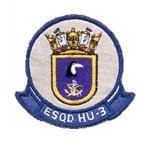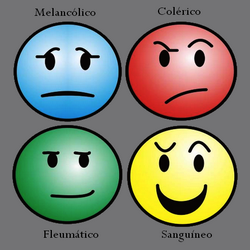https://archive.ph/MWQwE The pre-Pearl Harbor GOP is back
Gov. Ron DeSantis (R) of Florida has been widely and rightly criticized — including by prominent members of his own party — for dismissing the Russian invasion of Ukraine as a “territorial dispute” of little concern to the United States. Yet, while he says that countering Russia is not a “vital national interest,” he claims that “checking the economic, cultural, and military power of the Chinese Communist Party” is one. DeSantis worries that U.S. aid to Ukraine could draw us into “a hot war” with a nuclear-armed state, but he expresses no such concern about U.S. aid to Taiwan — even though, in the event of Chinese military action against Taiwan, U.S. forces would be far more likely to fight China directly.
This distinction — U.S. aid to Ukraine bad, U.S. aid to Taiwan good — makes little strategic sense: Both Ukraine and Taiwan are worth supporting, and both Europe and Asia matter to the United States. But it’s a dichotomy rooted in a century of Republican foreign policy thinking.
In the 1930s, Republicans were isolationist when it came to Nazi Germany but were more sympathetic to sanctioning Japan and supporting Nationalist China, as political scientist Colin Dueck noted in his history of GOP foreign policy. The “America Firsters” saw support for Britain as a plot by the Eastern Establishment, international bankers and Jews to embroil America in another world war, but they romanticized “Free China” as a fertile ground for Christianity and capitalism. Even during World War II, some Republicans criticized Franklin D. Roosevelt for prioritizing the defeat of Germany over Japan.
In the early years of the Cold War, Republicans such as Sen. Robert A. Taft of Ohio were opposed to joining NATO or sending U.S. troops to Europe, but, during the Korean War, they supported Gen. Douglas MacArthur’s desire to wage war on “Red China” with the help of Taiwan.
Dwight D. Eisenhower’s victory over Taft for the 1952 Republican presidential nomination vanquished the “Asia First” wing of the GOP and made Republicans a firmly Atlanticist party. Just watch Ronald Reagan’s 1984 speech on the 40th anniversary of D-Day, which was a tribute not only to the “boys of Pointe du Hoc” but also to “a great alliance that serves to this day as our shield for freedom, for prosperity, and for peace.”
Now the pre-Eisenhower GOP is back with a vengeance, thanks to former president Donald Trump, who reveres Vladimir Putin while reviling China. DeSantis, who as recently as 2015 supported arming Ukraine, is following his lead.
Admittedly today, as Dueck pointed out to me, “the Asia First argument actually has more validity” than in 1940s or 1950s. But, if China is now America’s top threat, Russia is a close second — and it has far more nuclear weapons. Moreover, China and Russia are partners, and Russia’s difficulties in conquering Ukraine may discourage China from trying to conquer Taiwan.
A few analysts, including former Trump defense official Elbridge Colby, argue that the United States cannot afford to support both Ukraine and Taiwan. But America’s billions in aid to Ukraine are only a tiny portion of a defense budget that is approaching $1 trillion. “US spending of 5.6% of its defense budget to destroy nearly half of Russia’s conventional military capability seems like an absolutely incredible investment,” argues the Center for European Policy Analysis.
[Chris Sununu: Some of my GOP colleagues have lost their moral compass on Ukraine]
Aside from Stinger and Javelin missiles, there is little overlap between the weapons systems needed to fight Russia and China: Ukraine is experiencing a land war, while a battle over Taiwan would be a naval and air war. The United States isn’t dispatching aircraft carriers, submarines or F-35’s to help Kyiv. In fact, as conservative analyst Gabriel Scheinmann argued in The Post, aid to Ukraine will increase U.S. capacity to fight China, because it is reviving America’s decaying defense industrial base.
But it’s safe to say that DeSantis’s turn against Ukraine is motivated by politics, not principles or a thought-out foreign policy. Today, 40 percent of Republicans say that the United States is providing too much aid to Ukraine — the view espoused by Tucker Carlson and Trump. Meanwhile, 76 percent of Republicans cite China as America’s greatest enemy.
Why are so many Republicans soft on Russia and tough on China?
1. China is an economic threat; Russia isn’t. (Both parties blame China for the loss of U.S. jobs while ignoring all the jobs created by U.S.-China trade.)
2. China is nominally a Communist country; Russia isn’t. (In practice, however, both combine capitalism with authoritarianism.)
3. Putin has made a play for right-wing support by posing as a defender of Christianity and traditional values.
4. There is growing anti-Asian racism in America.
5. Many Republicans will oppose anything Democrats support (and vice versa), and Democrats are backing Ukraine.
Whatever the explanations, the return of so many Republicans to a quasi-isolationist, Asia First foreign policy is an ominous development. If the GOP succeeds in blocking further U.S. aid to Ukraine, it could allow Putin to win the war despite his battlefield blunders, and that would make him a greater threat to NATO. If Trump were to return to office, of course, he would be likely to pull out of NATO altogether. DeSantis might not be too far behind. And then we would be back to the pre-Pearl Harbor world.





